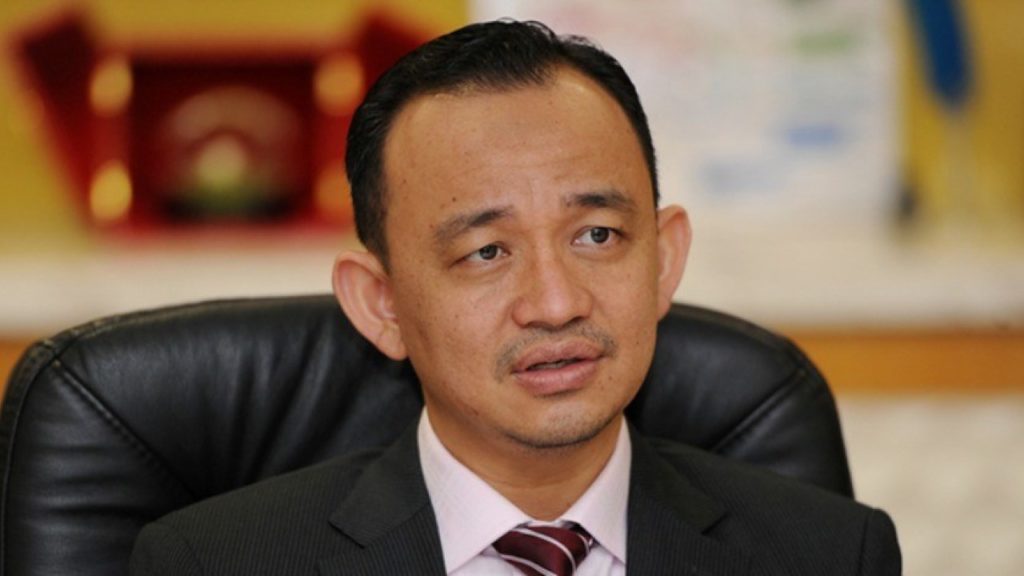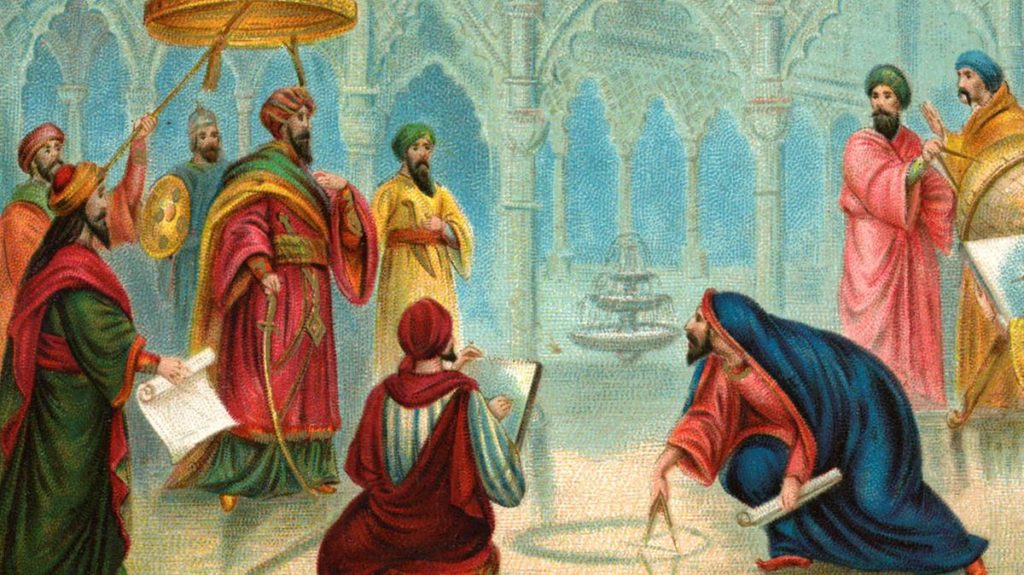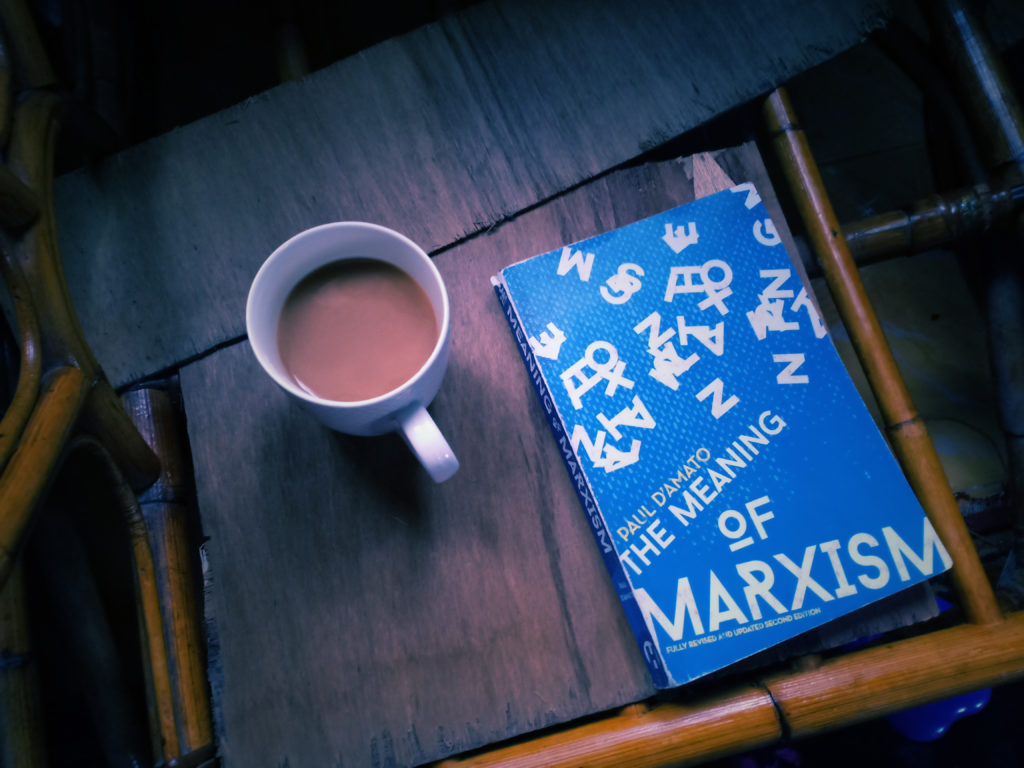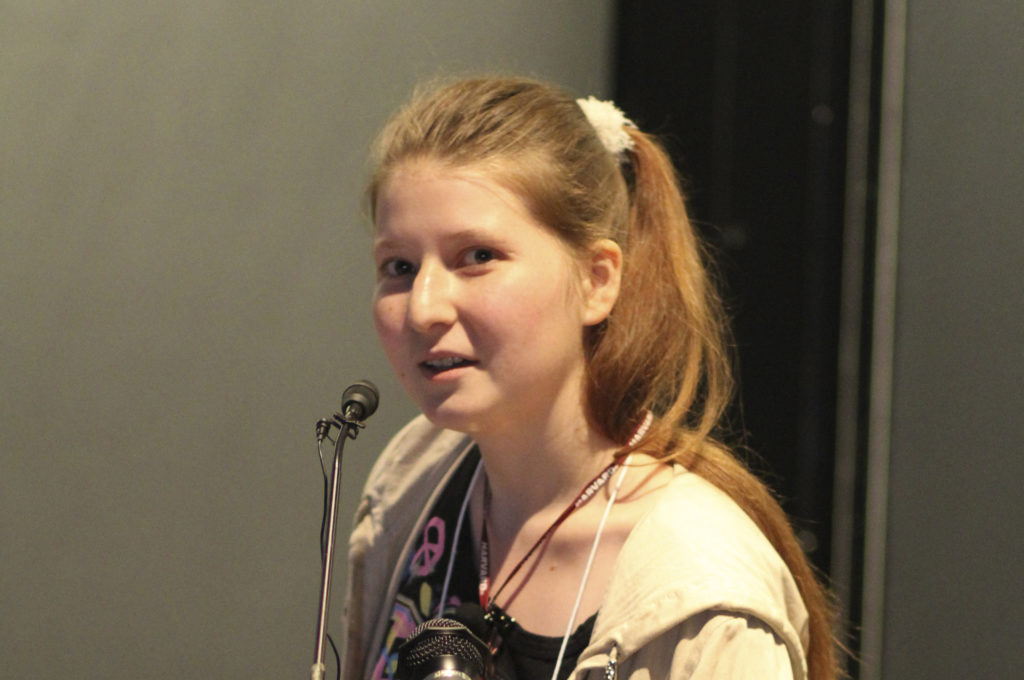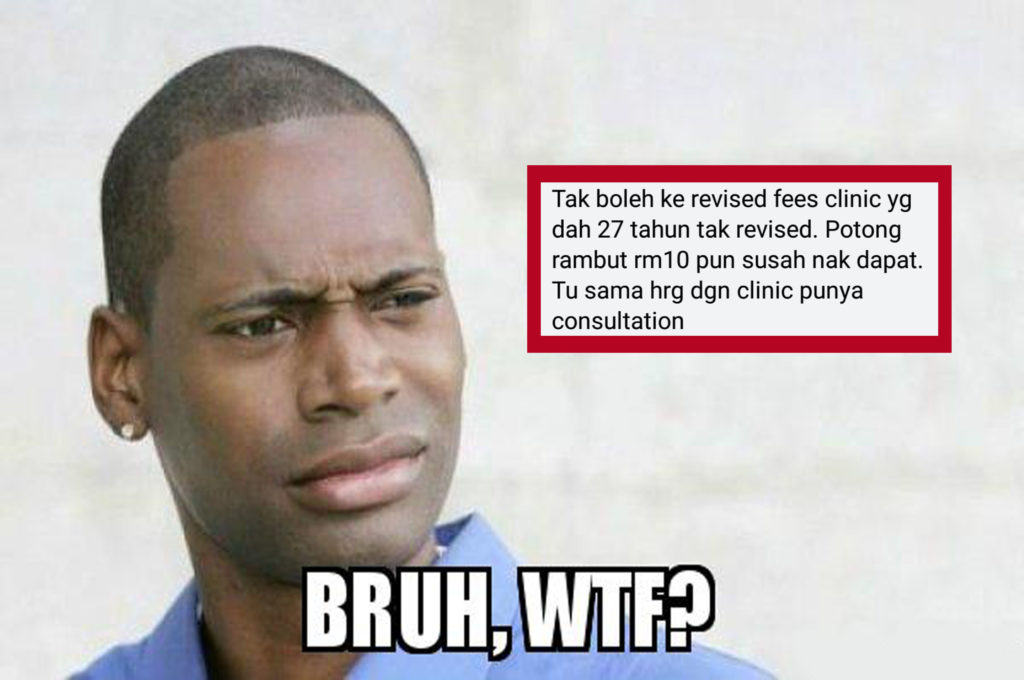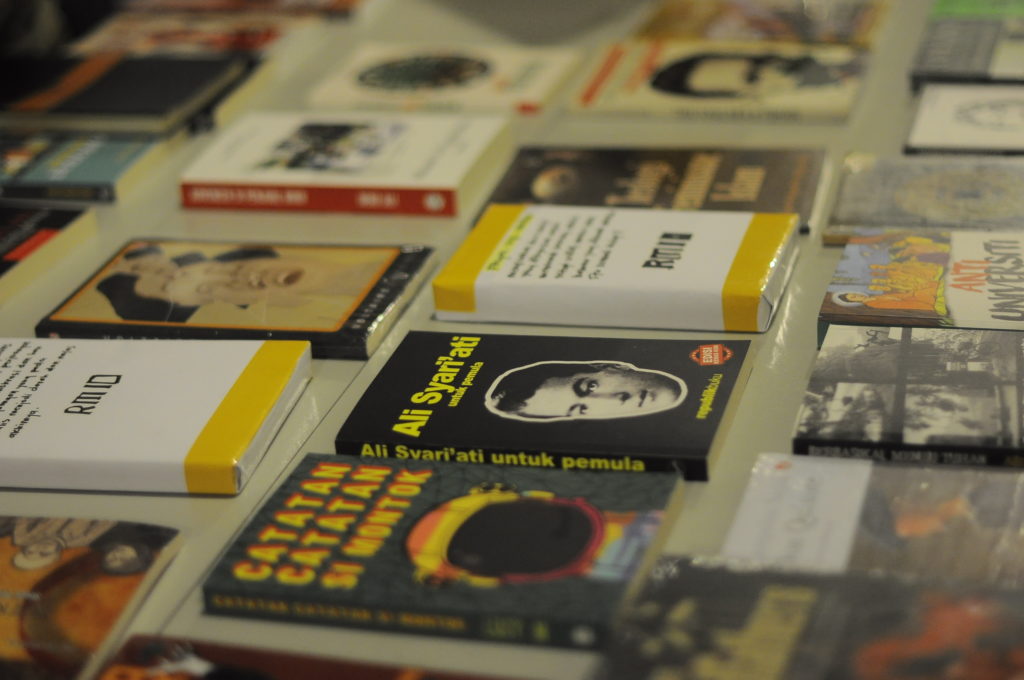
Pada Sabtu, 18 Januari 2020 telah berlangsung acara Pasar Buku 2020 anjuran kerjasama Lokalhouz dan Buku Jalanan Bagan bertempat di Lokalhouz, Butterworth, Pulau Pinang. Bermula dari jam 4 petang sehingga 11 malam. Pasar Buku kali ini menampilkan penerbit tempatan seperti Republikbuku, Penerbit USM, MYWriters Penang, The Bibliophile dan banyak lagi. Antara segmen menarik sepanjang acara ini termasuklah sesi Sembang Lokal, Bacaan Puisi, Ulasan Buku Batu Uban, Tanjong dan Bagan oleh Prof. Dato’ Dr. Ahmad Murad Merican dan Live Akustik.
Forum Sembang Lokal menampilkan Saudara Benz Ali dari Republikbuku, Saudara Kiridaren Jayakumar dari The Bibliophile, dan Saudari Diyaa Mani dari MYWriters Penang. Topik yang dibawakan adalah Masa Depan Perbukuan Negara dan dipengerusikan oleh Saudara Farhan Azman dari Buku Jalanan Bagan.
Diyaa Mani – “Monkey see, monkey do”

Diyaa membawakan kisah kehidupannya bagaimana beliau berasal dari keluarga yang tidak kaya, mereka tinggal di flat, namun keluarga mereka tidak pernah kehabisan dua perkara, iaitu makanan dan buku. Ibu bapanya yang mementingkan pembacaan dalam diri anak-anak membentuk sifat suka membacanya hingga ke hari ini.
Beliau juga membincangkan masalah-masalah dalam komuniti yang membantutkan budaya suka membaca. Media sosial, budaya mahukan bacaan singkat, tiada sifat ingin tahu, merupakan antara masalah yang dilihatnya dalam masyarakat hari ini. Beliau juga berkongsi cabaran yang dilalui oleh MYWriters Penang tentang bagaimana ahli yang semakin berkurangan juga kekurangan dana dan tajaan. Diyaa juga menarik perhatian para penulis untuk menyertai kelab MYWriters Penang, terutamanya penulis dari kalangan orang Melayu.
Menyentuh perihal budaya penulisan, Diyaa berpendapat para penulis lama perlu lebih akomodatif dalam memberi ruang dan peluang kepada penulis-penulis baru, biarpun mereka mempunya ideologi, cara, dan gaya fikir yang berbeza. Bagi beliau setiap buku merupakan suara-suara unik, lebih ramai penulis lebih meriah dan lebih unit arena pembacaan kita di Malaysia.
Penggunaan teknologi juga tidak wajar dipandang enteng, satu gajet misalnya boleh berfungsi sebagai sebuah perpustakaan bergerak di tangan, teknologi mampu memupuk minat pembacaan jika digunakan dengan betul.
Bagi Diyaa, penulis perlu saling memperkuat antara satu sama lain, masyarakat kita perlu meninggalkan mentaliti Asia seperti hanya membaca bacaan untuk menduduki peperiksaan atau bagi tujuan kerjaya sahaja. Anjakan paradigma ini perlu dilakukan dalam keluarga, perlu ada perubahan mentaliti, hal ini kemudian akan mewujudkan ripple effect yang melahirkan masyarakat membaca. Ibubapa perlu membaca untuk melahirkan anak-anak yang membaca, bak kata pepatah Inggeris, monkey see, monkey do.
Kiridaren Jayakumar – Kebangkitan gerakan sastera
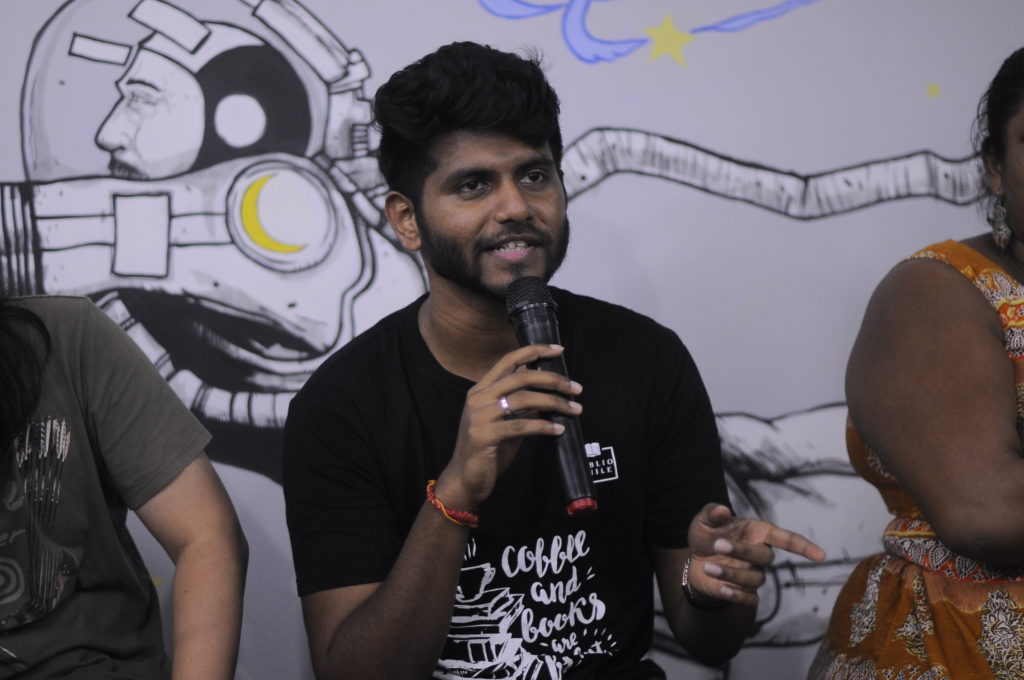
Kiridaren memulakan ulasan beliau dengan nada optimis. Beliau menggambarkan bagaimana budaya pembacaan merupakan sesuatu yang bersifat kitaran, ada naik dan turunnya. Pada amatan beliau, sekarang masyarakat kelihatan mula bangkit terutamanya dalam gerakan kebangkitan sastera. Beliau juga membincangkan bagaimana program Nilam di sekolah dapat dibaiki untuk menarik minat murid membaca, juga peranan kerajaan dalam membina infrastruktur membaca seperti Book Street di Vietnam.
Beliau turut menyampaikan pemerhatian beliau bagaimana industri buku tertumpu di Lembah Klang, juga peranan anak muda dalam menghidupkan dan bersifat partisipatif dalam aktiviti perbukuan di seluruh negara. Kiridaren juga sempat mengkritik sesetengah kedai buku yang sekadar menjual buku seperti komoditi dan tiada enthusiasme, sebagai contoh staf-staf kedai buku sendiri yang tidak membaca menjadikan sesebuah kedai buku tidak ‘hidup’.
Benz Ali – Buku adalah perjuangan
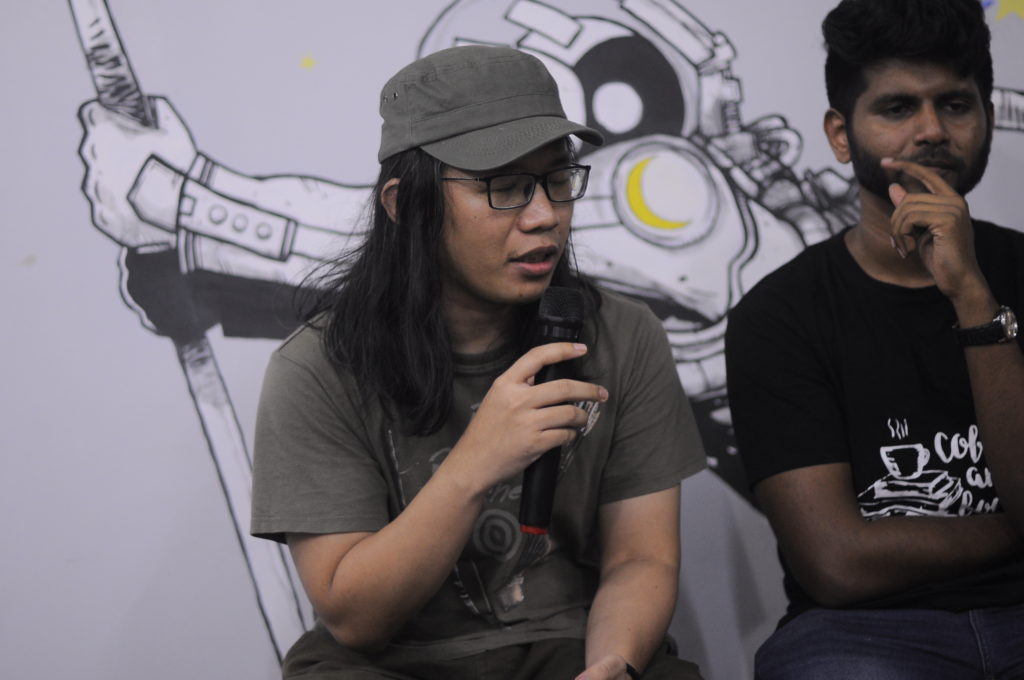
Suasana forum sedikit gamat apabila Benz Ali memulakan ulasan beliau dengan membetulkan poster penganjur, perkataan ‘pembukuan’ baginya perlu digantikan dengan ‘perbukuan’, kerana menurutnya pembukuan membawa maksud perbuatan membukukan tulisan, sementara perbukuan merupakan kata yang mewakili industri buku, beliau kemudian membawakan contoh-contoh dari Dewan Bahasa dan Pustaka bagi menguatkan hujahnya.
Selaku individu yang bukan komunis tetapi pro-komunis, Benz mengishtiharkan dari awal bahawa masalah dalam perbukuan negara ini adalah disebabkan oleh kerajaan. Beliau memulakan ulasan beliau dengan memetik laporan MABOPA dari Berita Harian yang menyatakan tiada ransangan nyata dari kerajaan untuk memajukan aktiviti perbukuan, kerajaan tidak berfikir tentang buku, dan tahun 2020 akan menjadi tahun yang suram buat industri buku. Beliau juga menaikkan polemik yang melanda ITBM, walaupun beliau tidak bersetuju dengan tindakan ITBM yang menerbitkan buku ratu kosmetik, Vida, bagi beliau ITBM perlu dipulihkan, dibantu, dan kembali ke matlamat asal, menerbitkan buku-buku ilmiah serta mengalih bahasa karya-karya terkini ke dalam bahasa Melayu.
Benz secara dasar tidak bersetuju dengan kenyataan bahawa masyarakat sekarang tidak membaca, kerana portal-portal seperti The Patriot, Illuminasi, berkembang dengan baik, seolah-olah ada kebangkitan ilmiah. Disini kita melihat bahawa masyarakat kita membaca, tetapi mereka mahu membaca secara percuma.
Disini kita melihat adanya satu paradoks, dan Benz sendiri mengaku secara jujur bahawa beliau tidak dapat menyelesaikan paradoks ini. Iaitu jika kita mengenakan bayaran kepada bahan bacaan kita akan mencipta dua golongan, golongan yang mampu membayar akan membaca, dan yang tidak mampu tidak membaca. Natijahnya kita akan mempunyai golongan elit membaca dan massa yang tidak membaca. Pada hemat beliau, buku adalah sesuatu yang elit, jika kita mempunyai banyak buku di rumah kita merupakan orang yang elit, walaupun mungkin ia adalah elit yang positif.
Beliau juga menyatakan bahawa kita perlu mengakui bahawa internet adalah masalah, ia perlu diakui, dan penerbit perlu hadapi masalah ini, bukan lari daripadanya. Salah satu cara menghadapinya adalah menukar gaya cetak dari offset kepada print on demand. Beliau memuji usaha yang dilakukan oleh Affendi Salleh yang berjaya mengawal pasaran buku beliau, beliau berjaya menjual buku kulit kerasnya berharga RM50. Ini lebih bermaruah dari penerbit yang membuat jualan murah saban tahun kerana hendak menghabiskan naskah yang dicetak secara offset.
Bercakap tentang solusi permasalahan perbukuan, Benz memulakannya dengan membawa statistik dari Wikipedia. Bagaimana negara maju seperti China menerbitkan 440,000 judul baharu setahun, United Kingdom 184,000, Jepun 139,000, malangnya Malaysia hanya 15,000 judul baharu setahun. Benz menyalahkan hal ini kepada kerajaan, mantan menteri seperti Maszlee bagi beliau membawa usaha yang gagal dengan kempen air liur dan billboard sahaja.
Bagi beliau kerajaan perlu menyediakan dana untuk bacaan berat seperti buku ilmiah. Walaupun rugi dari sudut ringgit tetapi ia merupakan usaha memandaikan masyarakat. Adakah kita tidak mahu menghantar anak ke sekolah kerana ia tidak menguntungkan kita dari segi wang ringgit? beliau memberi contoh. Kerajaan perlu memanjakan gerakan pembukuan, penerbit lebih dari 5 tahun perlu diberi subsidi dan geran.
Kerajaan juga perlu menyediakan ruang-ruang terbuka dan demokratik untuk kegunaan masyarakat tanpa mengira ideologi, kefahaman politik, bangsa, atau agama bagi kegunaan masyarakat beraktiviti dan berdiskusi. Insentif harus diberi pada kedai buku, juga mall yang hendak dibuka perlu diletakkan syarat perlu mempunyai kedai buku dan perpustakaan.
Bagi Benz, buku adalah perjuangan.
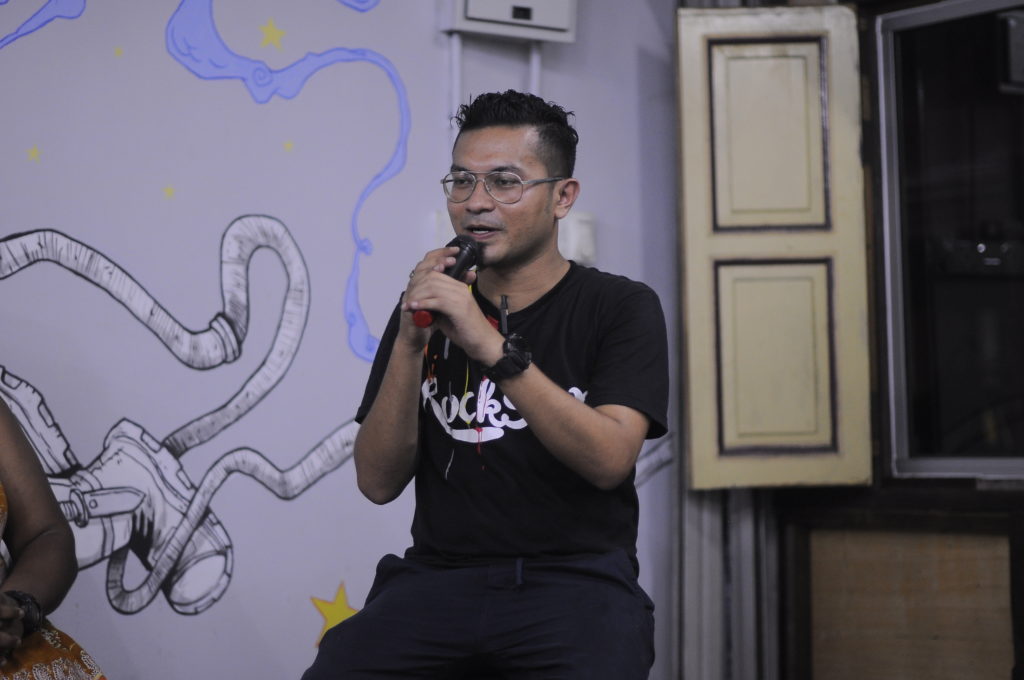
Sememangnya isu-isu yang diulas oleh panelis sangat relevan dalam menjamin masa depan industri buku tempatan. Peranan komuniti penulis dan penerbit buku dalam perjuangan kelangsungan industri bagi memandaikan masyarakat harus dipuji dan disokong. Sungguh buku adalah perjuangan, dan ibarat kata Zam Vicous, seorang peserta dihujung forum, perjuangan ini adalah bukti kewujudan kita!
Author of several books including Berfikir Tentang Pemikiran (2018), Lalang di Lautan Ideologi (2022), Dua Sayap Ilmu (2023), Resistance Sudah Berbunga (2024), Intelektual Yang Membosankan (2024), Homo Historikus (2024), DemokRasisma (2025), dan Dari Orientalisma Hingga ke Genosida (2025). Fathi write from his home at Sungai Petani, Kedah. He like to read, write and sleep.
